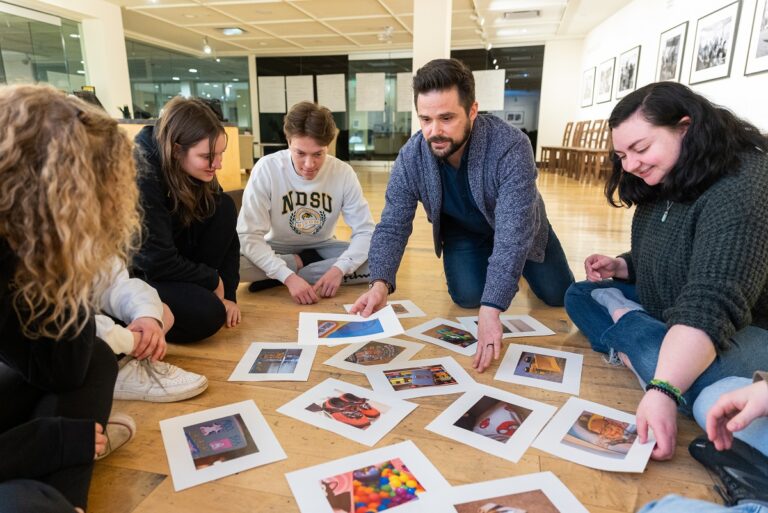Percussion performance major Alejandro López '25 is expanding the language of music at NDSU.
Read MoreThe Transformative Power of a Healthy Mind
Business leader and board chair CeCe Morken '79 shares how prioritizing mental well-being will make you a more successful — and resilient — leader.
Story by Micaela Gerhardt | Illustrations by Leah Ecklund | January 18, 2023
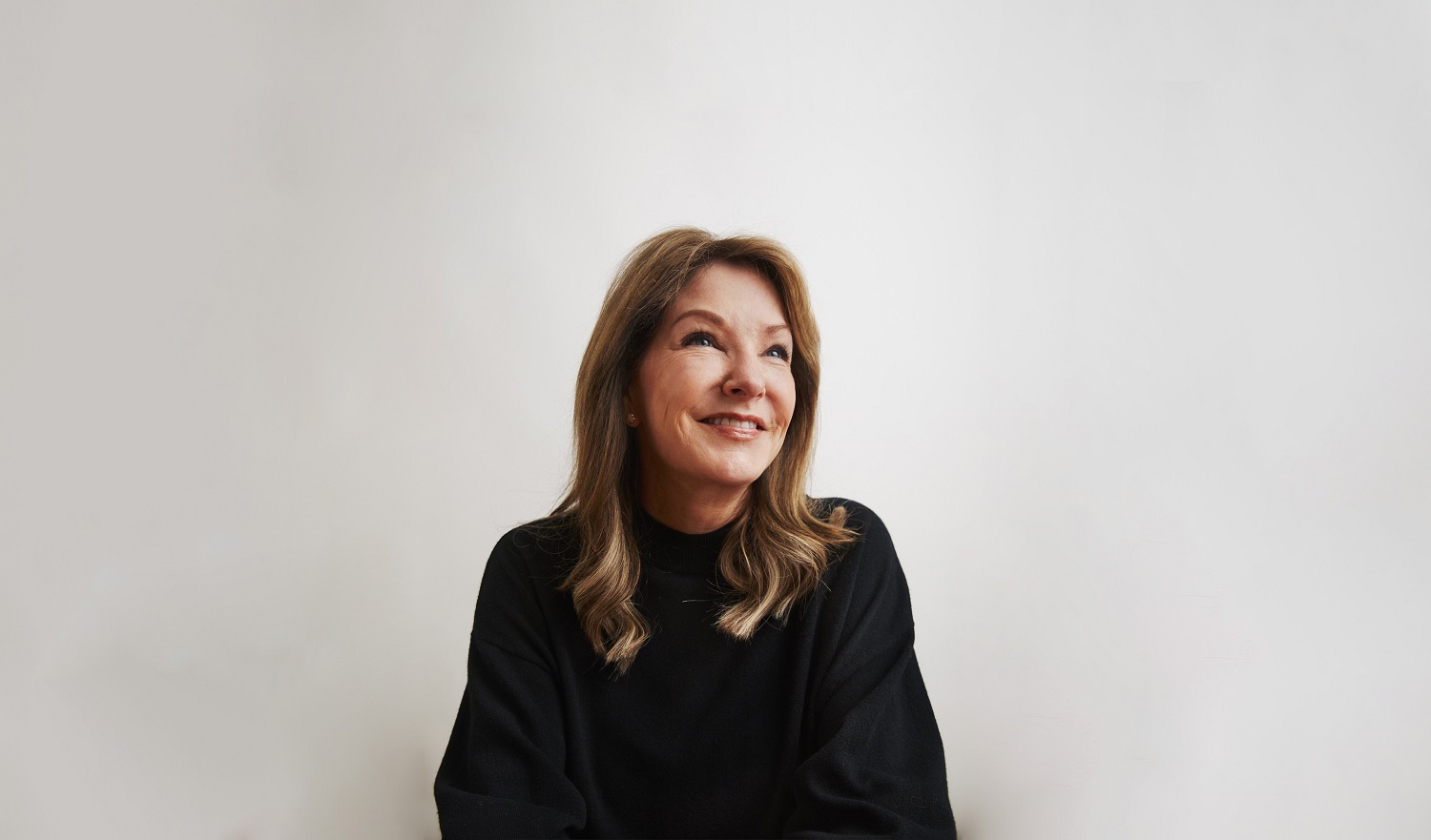
When CeCe Morken ’79 brings leaders together for meaningful conversations, she makes a splash —literally. To illustrate the importance of keeping an open mind, she’ll pour water into an already full cup. Water will rush down her hand and splatter on the conference table, but CeCe will continue pouring until water trickles over the edge of the table and onto the floor.
If you already have all the answers, CeCe will say, your mind is like this cup full of water — there’s no room for you to welcome different kinds of thinking. She encourages everyone to come to the table ready to consider new ideas.
“Curiosity, to me, is the only way to learn and grow, so I’ll use this analogy when bringing leaders together,” CeCe said. “The benefit of having a curious mind and wanting to learn is that it helps you take risks. Many people are afraid because they want to have all the information before they take risks, but the only failure in risk-taking is the failure to learn. You will continue to grow if you’re trying new things and learning from them.”

For CeCe, who previously held senior roles at companies like Headspace and Intuit Inc., having an open mind and taking risks are guiding principles of innovation and achievement. Inspired by some of her former NDSU professors who challenged her to ask questions, broaden her perspective, and invite new ways of thinking, she established the CeCe Morken Thought Leader in Residence program in NDSU’s College of Business. The program invites diverse business, entrepreneurship, ethics, and culture experts to bring new, energizing ideas to campus.
“I looked at the program and thought of bringing in external influence to foster additional curiosity,” CeCe said. “One thing that happens when we are in an organization, whether it’s a university or a company, and we’re with the same people all the time, is groupthink. Groupthink is super dangerous because it doesn’t challenge our thinking enough, so when you have a way to inject something new, it’s helpful because, hopefully, you get an ‘aha’ moment.”
According to CeCe, who currently serves as a member of the board of directors for Wells Fargo, Alteryx, and Genpact, professionals who consistently embrace new ideas are more resilient in the face of challenges and changes in the market.
“To be resilient in the real world, you must pay attention outside of the marketplace, the university you’re in, or the system you’re a part of,” CeCe said. “What else is happening in the world that you need to pay attention to and learn from? What could influence you in five years?”
Questions like these help guide CeCe’s strategy. Her own adaptability and resilience were tested during her time as president and chief operating officer of Headspace, a mental health app that aims to improve users’ health and happiness. She joined the company in April 2020, at the height of the pandemic, and onboarded entirely remotely. When she began leading the team in all-hands, or town hall-style, meetings, she said she misjudged how to connect with her staff at that critical time.
“We were all dealing with a lot,” CeCe remembered. “I mean, there was so much going on at that time — racial injustice, burnout — but I was jumping too much into the [work-related] topics, and I had to say, ‘I’m sorry, I made a mistake. I need to slow down and let us have a moment together to just pause and breathe and talk about what’s going on, and then we’ll get down to business.'”
From that point on, CeCe started each team meeting with a brief meditation, a practice she still integrates into her workday, giving everyone a moment to pause, breathe, and transition from one task to the next, bringing a rejuvenated focus to the moment at hand.
“When I said I made a mistake and, ‘I’m sorry, I’m correcting it now,’ it was amazing the number of supportive responses I received,” CeCe said, “but if leaders don’t role model that it’s OK to make a mistake, learn from it, and share it, then they’re not showing that it’s acceptable.”
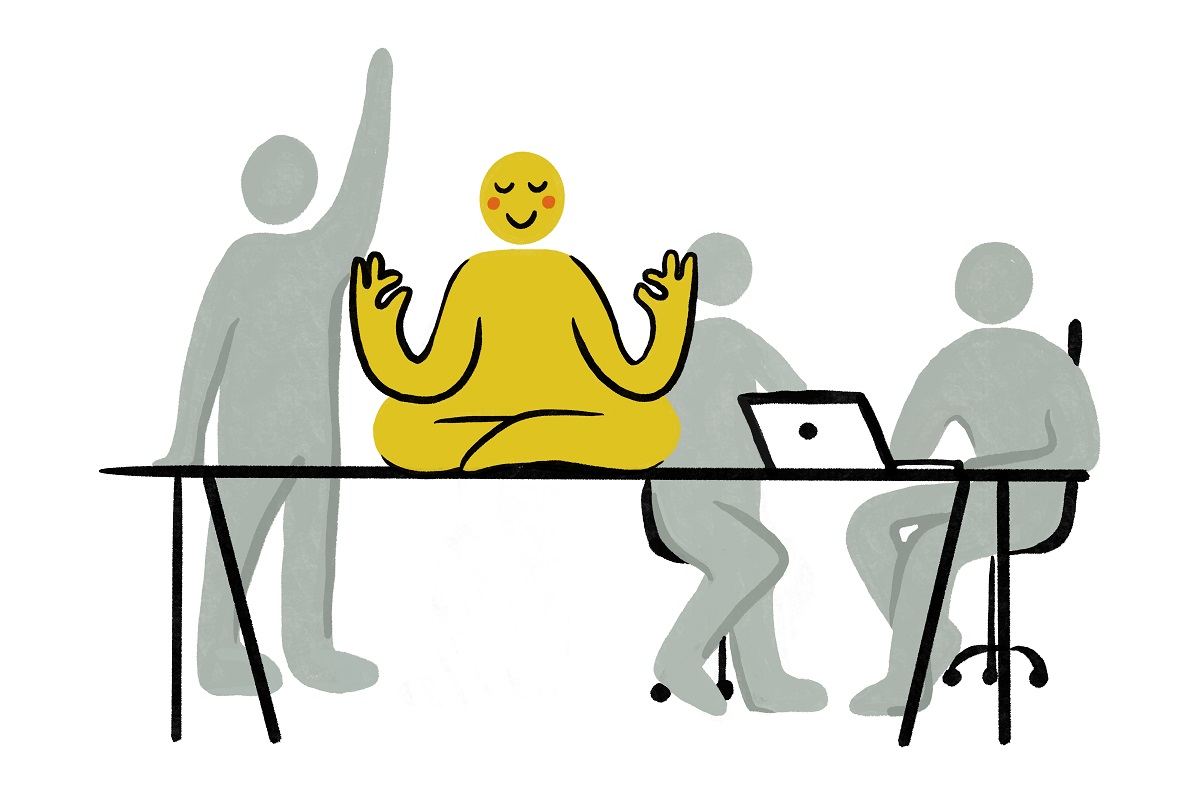
CeCe integrates meditation into her workday by taking a moment to pause and breathe between meetings and tasks.
For CeCe, this experience also drove home the importance of prioritizing mental well-being in the workplace, where mental health remains a personal and often undisclosed topic even though roughly 1 in 8 people worldwide are suffering from a mental health condition such as anxiety, depression, or post-traumatic stress, among others.
“You think nothing about showing up [to work] with a brace on your knee and saying, ‘Oh, I was playing basketball and tore my ACL,'” CeCe said, “but people don’t show up on Monday morning and say, ‘Hey, I’m not altogether here. I’m dealing with issues and it’s causing me some concerns.'”
CeCe, who was promoted to chief executive officer of Headspace during her first year with the company and served in the position from 2021- 2022, sees an opportunity for business, campus, and community leaders to help people build resiliency and trust by creating a stronger organizational culture around mental health.
“If leaders would talk about their mental wellness and what they’re doing to take care of it, whether it’s, ‘Hey, I had something happen in my family, and it was difficult for me. Here’s what I’m doing to deal with it. Here’s what I might need from you,’ you cannot imagine the impact that has on people,” CeCe said. “If it’s not something that leaders talk about — like me, or the boards that I’m on, those CEOs and senior leaders — we’re not going to get rid of the stigma.”
At NDSU, President Dave Cook has outlined his five key priorities to enhance the University, one of which includes “investing in the well-being of the people across the NDSU community.” In citing ways to support well-being in his inaugural State of the University Address, President Cook described bettering mental health services for students and employees, addressing daycare challenges, and offering a flexible remote work policy to help retain talented faculty and staff.
He’s also embraced the vision of the President’s Council for Campus Well-being (PCCW), which aims to “support the academic mission of the University by taking a holistic approach to increasing and sustaining all aspects of campus well-being.”
The PCCW leads ongoing conversations about how to help employees and students achieve well-being through a full range of services and activities that extend even beyond counseling and health care. Some of NDSU’s many offerings include a discussion series called “unThink” that invites the campus community to reflect on a variety of health and well-being topics; therapy animals; private spaces for reflection, meditation, or prayer; and faculty- and student-led initiatives such as the “Snap the Stigma” social media campaign led by NDSU pharmacy faculty; the “Green Bandana Project” under the umbrella of NDSU’s Residence Life, which teaches students techniques to support those who are struggling with their mental health; and “Mental Health First Aid,” a 12-hour training certification course that educates participants on a “five-step plan to assess a situation, select and implement interventions, and secure appropriate care for the individual” experiencing a mental health struggle.
CeCe says that mental well-being requires ongoing and preventative care — and it isn’t just an issue for people with a diagnosed mental health condition. She describes mental health as a fluid spectrum that ranges from mental wellness to chronic condition management — people who have experienced a mental health condition can achieve a state of mental wellness. In contrast, people who have experienced mental wellness may, at some point in their lives, struggle with their mental health.
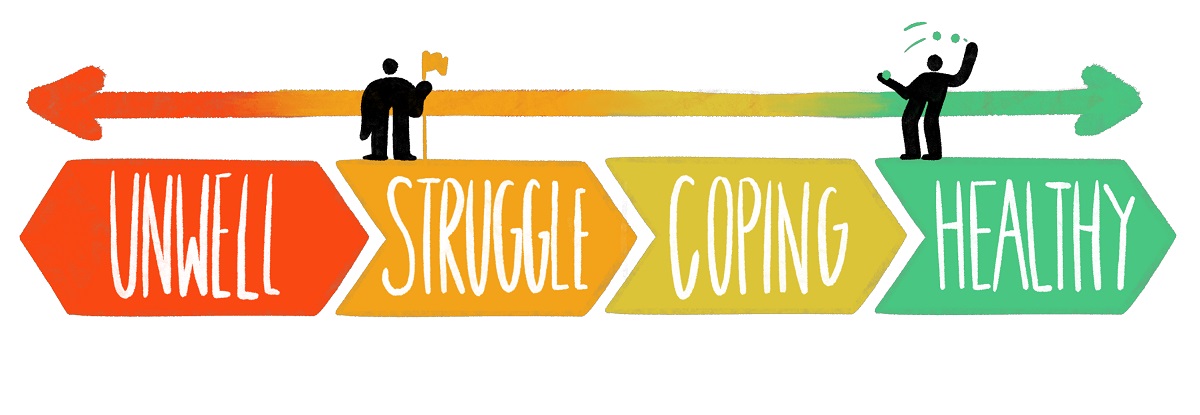
CeCe describes mental health as a fluid spectrum. For this reason, she says it’s important for all people to establish ongoing routines for mental well-being.
“We may not all experience chronic condition management, but 1 in 5 of us every year will have issues that cause us to move up and down the mental wellness continuum during our lifetime,” CeCe said.
CeCe believes everyone should incorporate routines for mental well-being into their personal and professional lives, regardless of where they currently fall on the spectrum of mental health. She recommends the practice of mindfulness, which can be achieved in brief moments throughout the day.
“Mindfulness is fitness for your mind — just like you have routines for your physical well-being,” CeCe said. “I think the view that mindfulness is for monks and touchy-feely people is flawed. It’s about helping you develop resiliency to deal with [difficult] things when they arise.”
Mindfulness can be something other than silent meditation. CeCe describes mindfulness as the practice of presence, acceptance, and calmness. In a world where people are in a near-constant state of multitasking, even outside of work, presence is choosing to enjoy the current moment with fewer distractions. Acceptance is a willingness to observe and listen to people without judging them, and calmness is an effort to be reflective versus reactive in decision-making.
CeCe infuses her day with mindfulness by making intentional choices about where she gives her attention and focus. It’s a practice she calls taking care of the “whole self,” which means that tending to her mental health is just as important as managing her physical health. For instance, CeCe feels her best when she wakes up early, sets a purpose for her day, and finds a way to give back or do something helpful for someone else. She also typically goes for a run, which she does without headphones, even though she’s an avid podcast listener.
“I’m paying attention to the sound of my feet hitting the pavement or the dirt, depending on where I am, and my breathing pattern. I’m enjoying the cool air and the leaves on the trees. I’m in that moment 100%, and it sets me up for the day,” CeCe said. “Taking care of your mind helps you deal with other things.”
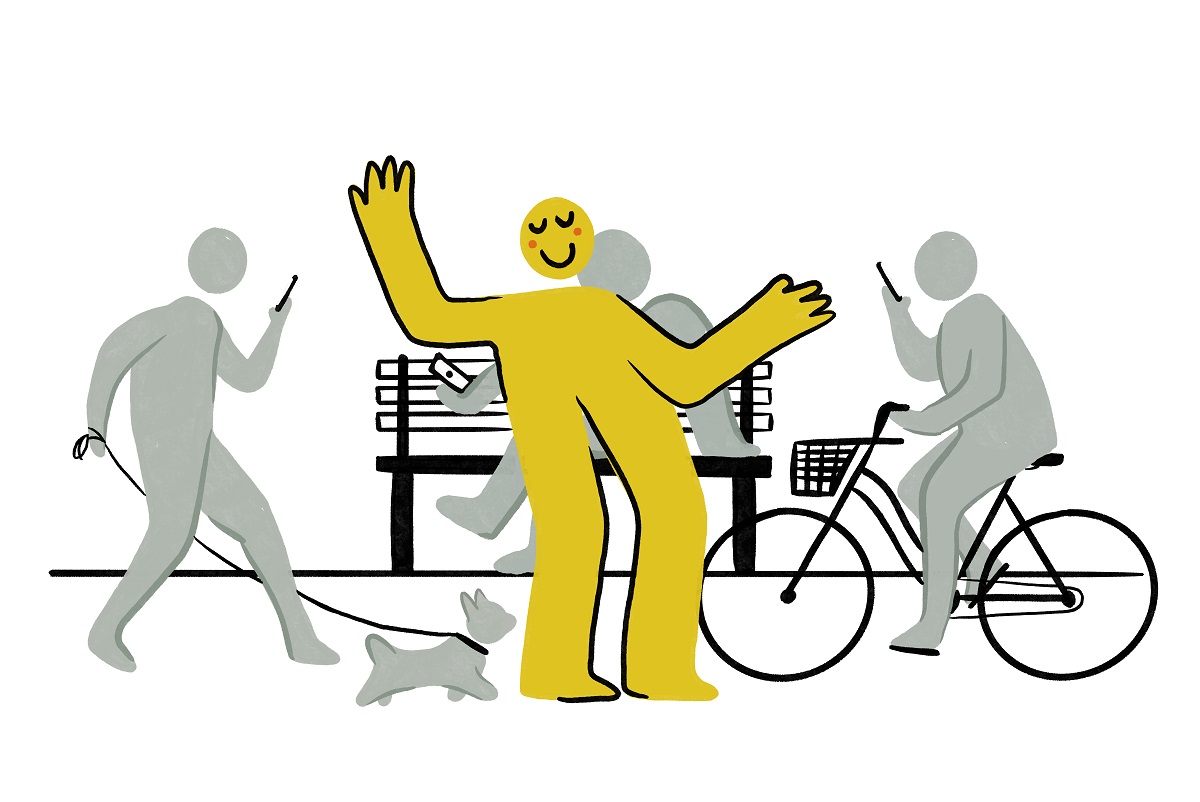
CeCe describes mindfulness as fitness for your mind. Enjoying the present moment with fewer distractions is a form of mindfulness that helps build resiliency.
Practicing mindfulness and taking stock of your mental well-being doesn’t require going back to the drawing board and rearranging your entire life. As a business leader who is ambitious and highly involved, CeCe takes time to evaluate her mental well-being and create moments of mindfulness throughout the day. She voices a need for setting boundaries and politely requests time for mindful transitions between meetings, which allows her to pause, take a few deep breaths, and become fully present for the next task.
“Part of that is just saying [my mental well-being] is a priority now,” CeCe said. “We’re all a work in progress, right? One of my many flaws is my tendency to take on too much. I see possibilities in so many things that the number one feedback I get is ‘do less better,’ so a strong focus of mine is learning to say no. ‘No,’ is harder than saying, ‘yes.’ I now ask myself, is this request a priority of mine or not?”
Part of the revelation of CeCe’s message is that things that can be viewed as weaknesses are actually growth opportunities, whether it’s struggling with your mental health or identifying one of your flaws as an individual or a company.
“Asking for help is a strength,” CeCe said. “I think [mental health] is still a very personal thing to talk about, and I think we will get better at it,” CeCe said. “It’s a big responsibility for leaders, and the more we talk about it and the more we role model, the better we make it for others.”
Share This Story
Related Stories
Devising a Show: A Unique Theater Experience Mirroring Life
NDSU assistant professor Marc Devine is collaborating with student-actors to bring stories from local foster parents to audiences in "Home."
Read More
